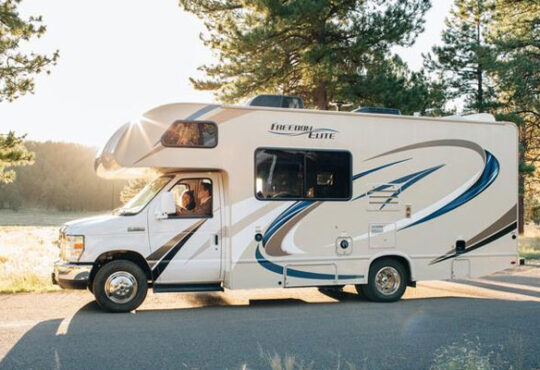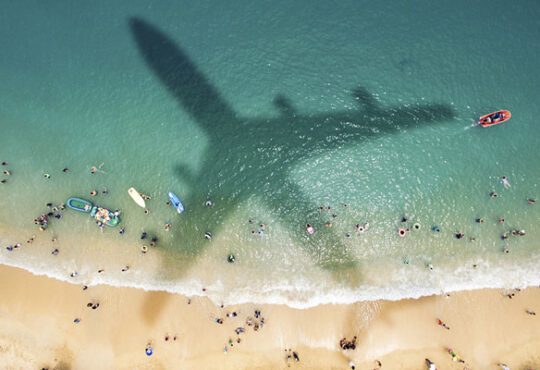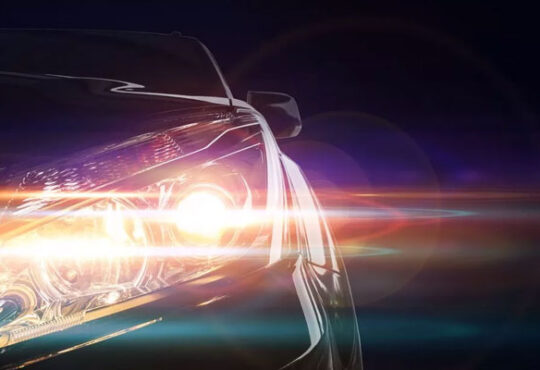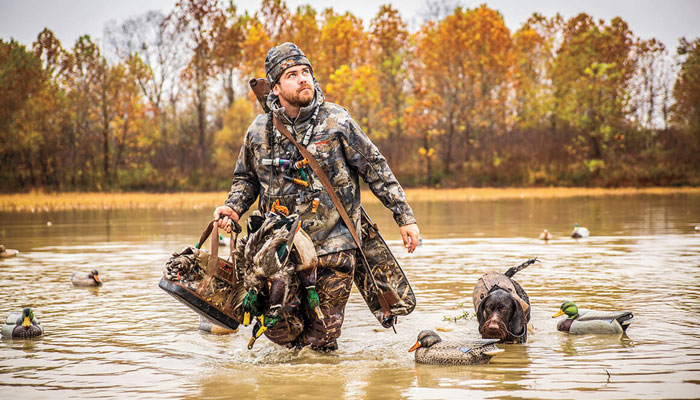
When you are buying a gift for the hunter in your life, consider small, often overlooked items that can make their experience better. These include hand and foot warmers, camouflage face paint, and trail markers.
Fire starters and a first aid kit are also essential. These are especially important when you are hunting from a ground blind or tree stand because you can’t generate as much body heat.
Optical Devices
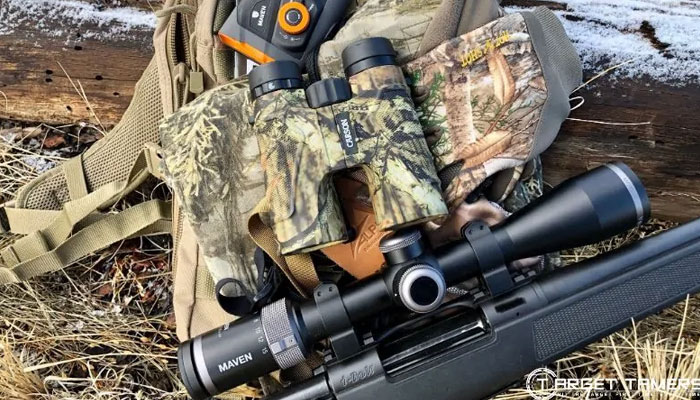
Optical devices are essential tools for Western hunters to use when they’re stalking and ranging game from long distances. Having rifle scopes, binoculars, and spotting scopes that are specifically designed for the types of terrain, weather conditions, and species they’re going after is critical for a successful hunt.
Rifle scopes can help hunters improve their shooting abilities by magnifying the image of distant targets and allowing them to see details that they might not have been able to spot with just their eyes. Some scopes even have a reticle that helps hunters aim more precisely and accurately.
A spotting scope can also be helpful for western hunters to use when they’re tracking their prey from a stand or a ground blind. A spotting scope with a wide field of view and a low magnification is ideal for these scenarios.
Game Calls
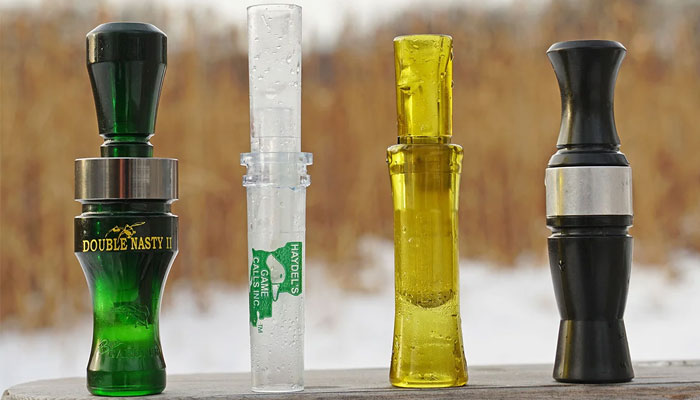
For predator hunters like coyote, bobcat, and wolf hunting, game calls are used to attract animals and lure them in close enough for the hunter to take a shot. These devices mimic animal noises and can be triggered with the push of a button. Many have a library of common sounds and can be programmed to make specialized calls.
Diaphragm calls work by forcing air through a latex film to vibrate and create a sound. These can be easier to use than reeds but may not produce the exact sound of the species you are targeting.
Reggie reminds mentors to encourage young folks and new hunters to call even if they don’t sound perfect. It’s the process that counts. The more a person practices the better they’ll become. It’s also important to know your surroundings and be aware of what is beyond the line of sight.
Mobile Phone
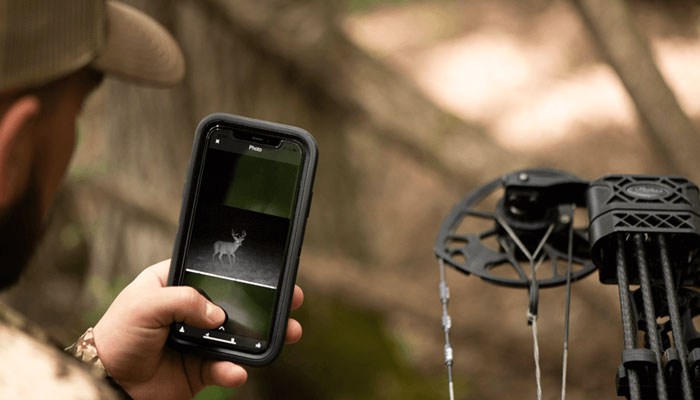
A mobile phone is a device that connects to a telecommunications network and can transmit and receive voice, video, text, or data. Unlike cordless phones, mobile phones don’t need to be returned to a base unit like landline.
Smartphones are teeming with functionality that can be useful for hunters. While purists may argue that smartphones take away from the hunting experience, most hunters use their mobile devices to their advantage, especially during long sits such as a whitetail rut all-day stand.
Among the most useful mobile features for hunters are video recording, geotagging, GPS tracking, and the ability to send images directly to an email or text. A mobile phone equipped with a thermal imaging monocular such as the AGM Taipan TM10-256 can also be a valuable tool in helping scout your hunting area and detect game before you set foot in it.
Electronics
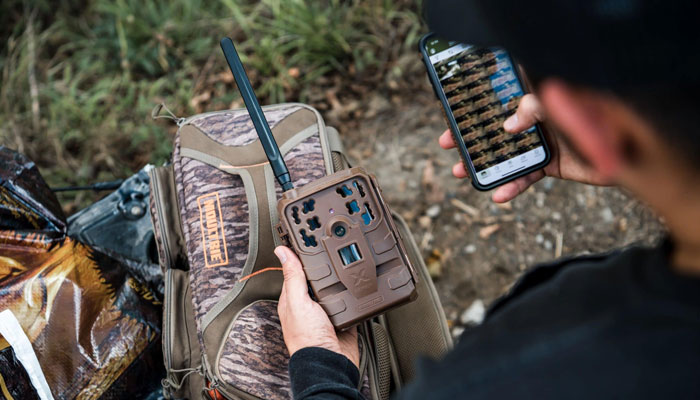
Hunters operate in a field steeped in tradition, but they’re also enamored with new technology that ramps up their time on the trail. Here are some cool hunting gadgets to consider as gifts for hunters in your life:
These two-way radios, or walkie-talkies, allow hunters to communicate with each other even when they’re separated by miles. They’re especially useful in remote areas where cell towers don’t work and can help your hunter stay safe by letting them check in with family members or summon assistance.
This gadget makes scouting and seeking permission for new hunting grounds much easier with its ability to sync information with your hunter’s GPS device. It’s one of the best new hunting accessories for 2019.
Backpack

A backpack is the most important accessory for a hunter. It hauls your gear and meat, so you must choose one that can handle the load. You should also consider the pack’s functionality for your specific hunt.
If you’re doing a day hunt from your truck, for example, a smaller pack will work well. But if you’re going to be doing overnight excursions into the backcountry, then you’ll need something bigger and more rugged.
It’s also important that your pack fits you properly. Make sure it’s sized for your torso length and hip circumference. Look for features like pig snout lash points, which can be used to tie on extra equipment and accessories. This allows you to get your gear close to your body for balance and stability. Also, consider a pack that’s hydration-capable. When shopping for outdoor gear, including backpacks, consider keeping an eye out for a Blocker Outdoors coupon to make your purchase more cost-effective and budget-friendly.
Knives
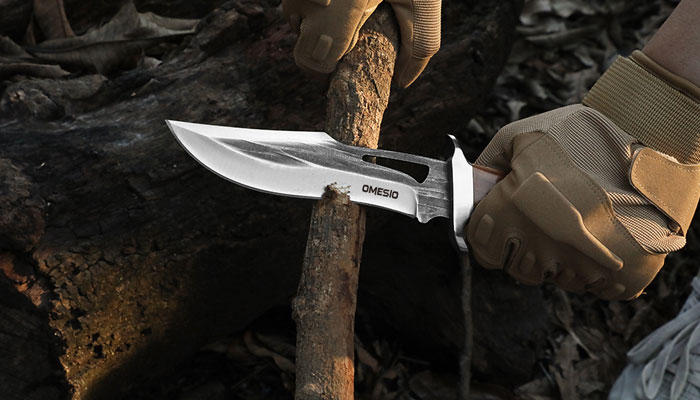
A quality knife is an essential part of any hunter’s gear. They can be used for both camp chores and specialized hunting jobs, such as gutting and skinning. A good blade should be able to hold an edge well and be durable. It should also have a sharp point, which is important when dealing with animals.
There are many different types of knives, and the best one will depend on your needs. For example, a drop-point knife has a spine that dips slightly into the curved belly of the blade, which makes it better for stabbing and piercing. Other types of blades, like straight backs, have a perfectly straight spine and are not ideal for those tasks. A hunting knife should also be lightweight and compact. This will allow you to carry it with ease. You should also consider how easy it is to resharpen in the field.
First Aid Kit

As any seasoned backcountry hunter knows, the wilderness is harsh and unpredictable. One misstep or a wrong move can send you into an emergency that requires more than just grit to overcome. That’s why it’s essential to prepare and arm yourself with the right tools to handle an unexpected backcountry medical emergency – including proper first aid training.
Your med kit should include basic supplies like bandages, antiseptics, and a wilderness first aid manual. Additionally, you should also consider bringing more advanced tools like a SOF-Tactical tourniquet which helps to control severe blood loss until emergency help can arrive.
To ensure you have the right gear, and customize your first aid kit based on the type of hunting trip you’re going on and your personal medical needs. You can learn more about preparing your survival kit in this article from Wilderness Medical Associates. When it comes to acquiring outdoor gear and equipment, including first aid supplies, consider keeping an eye out for a Saving Gain to make your purchases more cost-effective and budget-friendly.
Compass

A compass is a valuable tool for any wilderness adventurer. Many outdoorsmen are familiar with the concept, but it’s easy to forget how useful one can be in a survival situation. Unlike a GPS, a compass is independent of satellite signals and battery power.
Advanced compasses have features that make navigation easier, including a declination adjustment that allows you to compensate for magnetic declination. They also feature a sighting mirror and notch to help you aim at landmarks for more precise bearings. They are especially useful for mountaineering, backcountry skiing, and field scientists who work with avalanche hazards.
For those unfamiliar with a compass, a basic model is an inexpensive option that works just as well as a more expensive unit. But a full-featured compass is worth the investment for serious adventurers. It will be an indispensable part of your hunting kit.
Binoculars
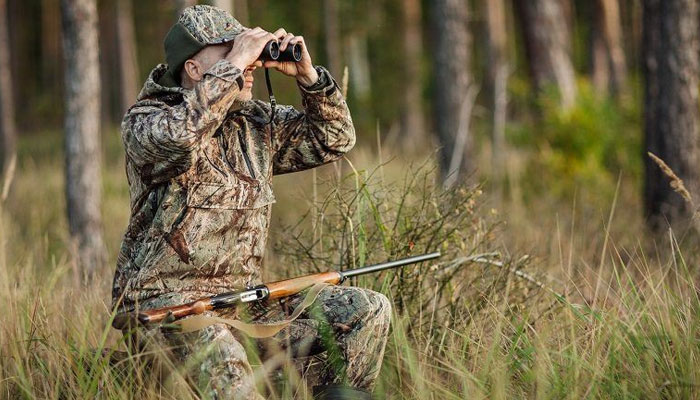
A high-quality pair of binoculars is a must for any hunter. Choosing the right binoculars depends on your terrain, hunting tactics, and personal preference. Various factors play into how good your binoculars are, including magnification power, clarity, durability, and focus speed.
For example, hunters who prefer spot and stalk tactics will need a wide field of view and low magnification to locate prey from long distances. This approach requires glassing from a stand or moving slowly through brush and timber.
A tripod is also essential for stable viewing. Without a tripod, a pair of binoculars can easily shake from wind or fatigued muscles. This shakiness can make distant objects look blurry. A steady platform can help you see that chickadee in the bushes or twitch of a porcupine. The best binoculars are made to withstand conditions that many hunters encounter.
GPS

Having the right hunting gear can make or break your hunt. Whether you’re an experienced big game hunter or a beginner, the right equipment will help you hit your mark more often and get back to camp safely.
A quality backpack is essential for long hunts. It must be comfortable and fit your frame. It should also have enough room for all your necessities. It should also be waterproof so that it can withstand weather conditions.
GPS can be a valuable tool when hunting in new places. It allows hunters to set Geofences around their locations and will notify them if they go beyond the limits of the location. This can save hunters time and money from paying fines or getting arrested. You can also easily equip hunting dogs with Portable trackers. This way, you can easily track them whenever they are lost.
Conclusion
Choosing the right hunting accessories can make all the difference in your hunting experience. By following these 10 tips, you can ensure that you have the best gear for your needs. Consider the type of hunting you’ll be doing, the weather conditions, and your personal preferences when selecting items like hunting boots, backpacks, and binoculars. Don’t forget to invest in high-quality gear that will last you for years to come. With the right accessories, you’ll be well-equipped for a successful hunting trip.






